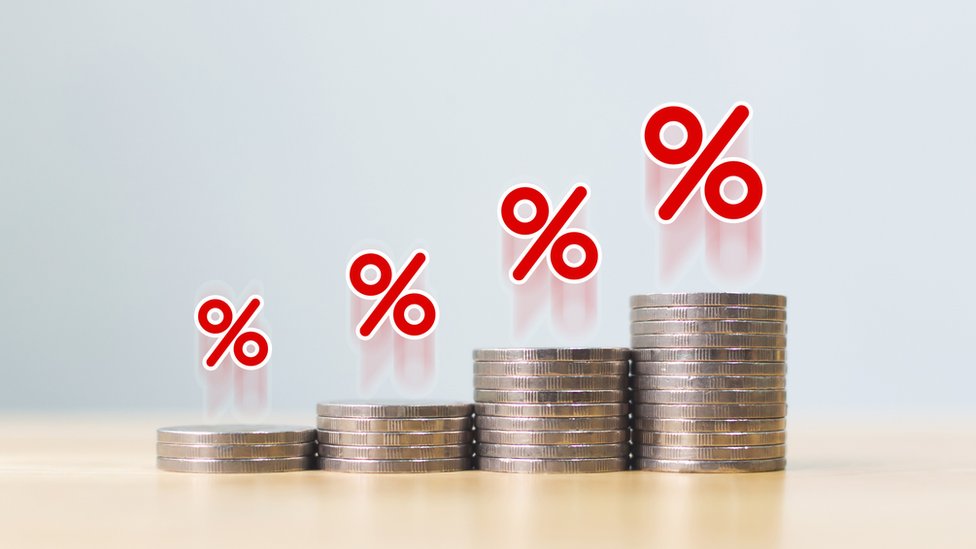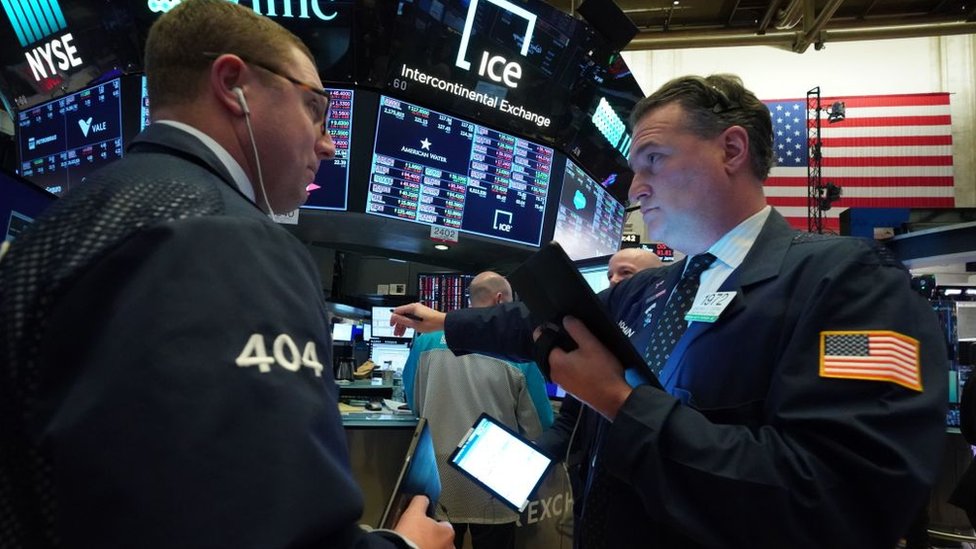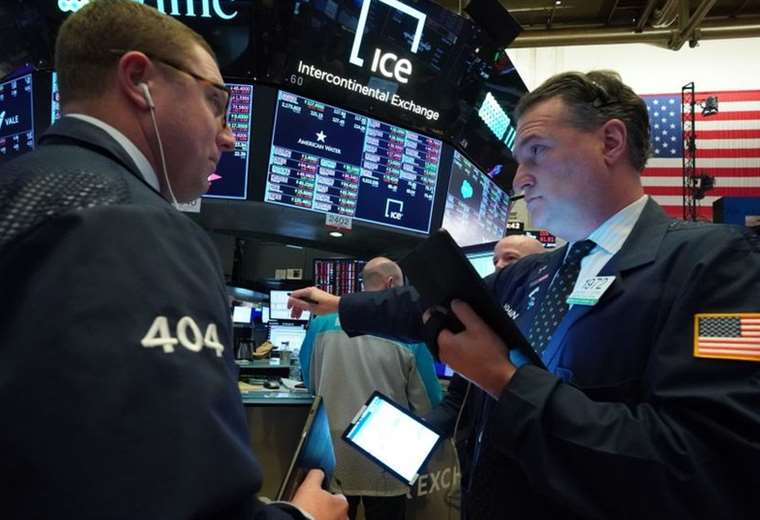March 20, 2023, 7:50 PM
March 20, 2023, 7:50 PM
Large financial corporations in trouble, central banks that come to the rescue and high volatility in the stock market. You sound familiar?
The current situation has led many to wonder if we are at the beginning of a crisis like the one unleashed in 2008.
Political authorities and central banks in the United States and Europe ensure that the financial system is solid and stable.
However, in recent days we have seen bursts of euphoria and panic among the investors who have caused shares to fluctuate aggressively – especially those of the banking sector – in the main stock markets of the world.
So how serious is the situation? And how can it affect you?
What happens to the banks
With the backing of the Swiss government, UBS absorbed Credit Suisse on Sunday.
Both are large banking corporations with investment operations around the world.

Swiss banking is known for its financial stability, so the collapse of Credit Suisse and its forced marriage with UBS has caused shock inside and outside the European country.
Even more so after two American banks went under days before: Silicon Valley Bank (SVB) and Signature Bankboth specialized in the technological sector.
And while these are the biggest bank failures in the US since 2008, neither was anywhere near the size of Credit Suisse, one of the world’s 30 largest banks.
Although no other entities apart from those mentioned have collapsed, the warning signs were lit in the central banks.
These announced new measures to contributeliquidity additional that guarantees the normal functioning of financial transactions.
They had only done this twice so far this century: in the 2008 financial crisis and at the start of the pandemic.
Its goal is to bolster people’s confidence and make sure banks can still lend and pay customers who want to withdraw their money.
Why is this happening now?
Credit Suisse’s problems go back a long way, from risk management mistakes over the years to scandals -such as money laundering- and steep losses last year that squandered the benefits accumulated in previous years.
But last week was pivotal: The bank found itself in a sudden downward spiral despite a $50 billion emergency line provided by the Swiss National Bank, and its clients began transferring their funds to other banks.
The two US banks, for their part, had different problems.

Paradoxically, the asset that has caused serious problems for SVB is one of those considered safest.
Taking advantage of the years of low interest rates, the entity had massively bought United States treasury bonds.
The abrupt rise in the price of money decreed in recent months by the Federal Reserve (Fed, the US central bank) reduced the value of bonds.
And the bank, forced to acquire liquidity to guarantee the withdrawal of money from its clients -especially technology companies affected by the crisis in the sector after the 2021 bubble-, had to sell a large part of its bonds at a loss and before their date due.
Signature Bank, for its part, was affected by the recent falls in the value of cryptocurrencies.
The two US banks found that their balance sheets were not strong enough to withstand a run on deposits by their customers.
But there is a common factor that affects all three entities -including Credit Suisse- and the banking sector in general: sharp rise in interest rates.

Central banks around the world have raised the price of money to try to curb relentless inflation, which has soared to its highest levels in decades in double digits in many countries.
After years of low interest rates, this increase has caused a whole shock.
Banks that own government bonds – whose price falls when interest rates rise – have suddenly discovered that your assets are worth less.
The rate hike “has hit the value of even safe investments in which banks keep part of their money. That has spooked investors and has driven down the share prices of all banks, hitting the weakest ones the hardest,” said Simon Jack, the BBC’s finance editor.
The largest banking corporations on Wall Street had to provide liquidity for the rescue of another bank specializing in the technology sector, First Republic, based in San Francisco.
And the Federal Reserve admitted that there was an increase in emergency lending to US banks in general.
Is it a banking crisis?
Analysts agree that today the same problem does not exist that affected the entire banking system in 2008.
At that time, banks around the world suddenly discovered that they were exposed to failed investments in the US real estate market.

That led to huge government bailouts, financial crisis, and a global economic downturn.
Regulations have since been imposed to force banks to have more liquidity and limit their exposure to risk.
Most experts believe that the current problems will have limited impact.
“SVB is not Lehman and 2023 is not 2008. We are probably not seeing a systemic financial crisis,” Nobel Prize winner Paul Krugman opined in a column this week, referring to the devastating financial crisis unleashed after the bankruptcy of the US bank Lehman. Brothers 15 years ago.
Still, the world of banking is extremely complex and it is difficult identify new system weaknesses until it comes under pressure, as in the current situation of high interest rates and fluctuations in investor confidence.
Furthermore, nervousness about the health of banks is often contagious, and if customers start to worry about their deposits, they can withdraw them in just a few seconds on their bank’s website or app.
Even without the complete collapse in confidence that characterizes financial crises, we could see regulators tighten rules even further and banks become less willing to lend money.
That could slow down the global economy at a particularly sensitive time, when rising prices are putting extra pressure on consumers’ pockets.
What will happen to my money?

At least in the United States and in Europe, citizens should not fear for their savings.
Even in the unusual scenario of a bank or building society failing, there is deposit protection.
The US government guarantees the return of all bank deposits up to US$250,000.
Asset protection in this country covers a variety of products, from checking and savings accounts to prepaid cards and certificates of deposit.
In the cases of SVB and Signature Bank, the US government went a step further and guaranteed customer deposits in fullabove the US$250,000 limit, although this does not guarantee that it will do so again if another bank fails in the future.
In the European Union, deposit protection amounts to 100,000 euros (US$107,000) and in the United Kingdom 85,000 pounds (US$104,000).
On the other hand, many analysts believe that the current crisis could have other, not so negative implications.
“The consequences of nervousness in the market could soften the impact of rising cost of living“, says Dharshini David, BBC world trade correspondent.
David mentions, in particular, the reduction in oil and gas prices that has been seen during the turmoil of the last few weeks, bringing some slight relief to consumers’ wallets.


















